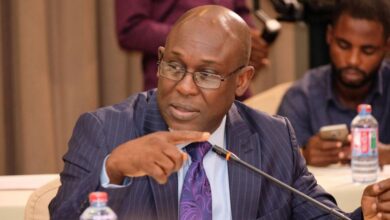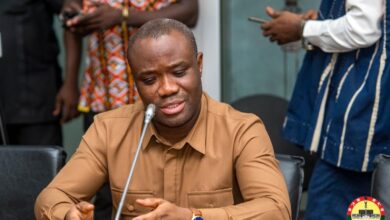Strike: Mortuary Workers in Ghana Threaten Strike Over Unpaid Arrears and Other Grievances

The Looming Crisis in Ghana’s Mortuaries
Ghana is facing a potential national crisis as mortuary workers across the country have issued a stern warning: if their grievances are not addressed, they will embark on a strike by Thursday, 26th September 2024. The threat has sent ripples of concern through the nation, as the closure of all mortuaries will affect vital services, including the handling of deceased bodies and funeral arrangements.
Unpaid Arrears: A Three-Year Struggle
One of the central grievances driving the mortuary workers to the brink of industrial action is the unpaid salary arrears. According to their representatives, the arrears date back to 2020, spanning over three years. Many of the workers claim that despite multiple assurances, the government has yet to take concrete steps to settle the outstanding wages. The impact of these delays has been significant, as most of the workers live paycheck to paycheck and are facing mounting financial difficulties.
Lack of Protective Equipment: A Health Risk
Another critical issue raised by the mortuary workers is the lack of adequate protective equipment. Handling deceased bodies, especially those of individuals who may have died from infectious diseases, poses significant health risks. The workers claim that the current state of affairs has left them vulnerable to health hazards. Without proper gloves, gowns, and other essential protective gear, they are forced to work in dangerous conditions, further exacerbating their frustrations.
Financial Clearance for 500 More Workers
The demand for financial clearance for the employment of 500 additional workers is also at the forefront of the mortuary workers’ list of grievances. The existing mortuary workforce is said to be overstretched and understaffed. The growing population and the rise in mortality rates mean that the workload has increased substantially over the years. The workers argue that hiring more staff would alleviate the pressure and improve working conditions, ensuring more efficient and safer operations in mortuaries across the country.

Government Response and Public Concern
As the strike deadline approaches, there is mounting pressure on the government to respond to the workers’ demands. While some government officials have called for patience, the mortuary workers insist that enough time has passed without action. The public is also growing increasingly anxious, as the strike will undoubtedly disrupt funeral services, post-mortem examinations, and general mortuary operations.
Religious and traditional leaders have voiced concern over the potential strike, particularly as funeral ceremonies hold deep cultural and religious significance in Ghanaian society. A disruption in mortuary services could delay burials, leading to overcrowded facilities and causing distress to grieving families.
What Happens Next?
If the strike goes ahead, the consequences could be far-reaching. Hospitals may struggle to cope with the storage of bodies, and funeral homes might be overwhelmed by the backlog of unburied deceased. Additionally, the strike could lead to serious health risks, as the handling of bodies becomes delayed, increasing the likelihood of decomposition in inappropriate conditions.
The Mortuary Workers Association of Ghana has urged the government to take immediate action to avoid such a crisis. They hope for a peaceful resolution but are prepared to stand firm in their demands if necessary.
Conclusion
As the nation awaits the 26th of September, all eyes are on the government’s next move. Will they address the legitimate concerns of the mortuary workers, or will Ghana face an unprecedented strike that could disrupt vital health services and impact families across the country? Only time will tell, but one thing is certain: the grievances of the mortuary workers have highlighted significant challenges within the country’s healthcare system that need urgent attention.
Read More: Global Peace Index: Ghana Drops 4 Places In Latest Peace Rankings Amidst Election Saga




